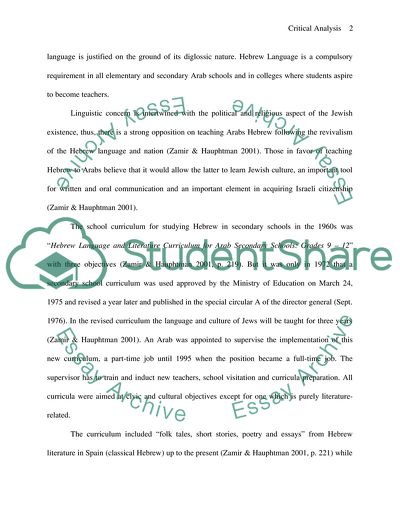Cite this document
(“Critical Analysis of Hebrew Literature Curriculum for Arab Sector in Article”, n.d.)
Critical Analysis of Hebrew Literature Curriculum for Arab Sector in Article. Retrieved from https://studentshare.org/education/1725670-a-critique-of-an-existing-academic-article-published-in-jceps-e-journal
Critical Analysis of Hebrew Literature Curriculum for Arab Sector in Article. Retrieved from https://studentshare.org/education/1725670-a-critique-of-an-existing-academic-article-published-in-jceps-e-journal
(Critical Analysis of Hebrew Literature Curriculum for Arab Sector in Article)
Critical Analysis of Hebrew Literature Curriculum for Arab Sector in Article. https://studentshare.org/education/1725670-a-critique-of-an-existing-academic-article-published-in-jceps-e-journal.
Critical Analysis of Hebrew Literature Curriculum for Arab Sector in Article. https://studentshare.org/education/1725670-a-critique-of-an-existing-academic-article-published-in-jceps-e-journal.
“Critical Analysis of Hebrew Literature Curriculum for Arab Sector in Article”, n.d. https://studentshare.org/education/1725670-a-critique-of-an-existing-academic-article-published-in-jceps-e-journal.


